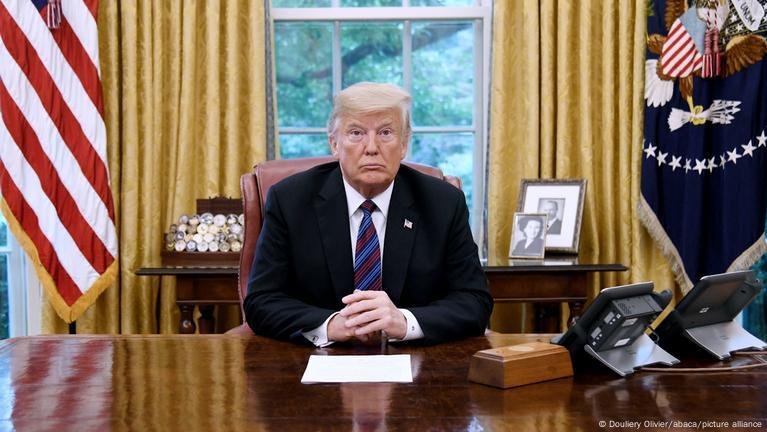NEW YORK, Dec 27: It has been a tumultuous year for the United States as President Joe Biden stepped back from his reelection campaign following a disappointing performance in a nationally broadcast debate against Republican contender Donald Trump, a convicted felon who survived two assassination attempts amid a fiercely contested election.
Trump, now 78, emerged victorious against Kamala Harris, who is of Indian descent. His return to the White House after a four-year absence dashed the hopes of the Democratic Party and countless supporters who dreamed of seeing the first woman President.
In a historical turn, Trump became the first president since Grover Cleveland, who was ousted from the White House 132 years ago, to reclaim his position four years later.
As the Biden administration prepares to transition out of the White House, an official remarked that the India-US relationship remains “in a very strong place,” and expectations are that this bilateral connection will continue to enjoy bipartisan support under Trump’s upcoming presidency.
Yet, as 2024 draws to a close, new challenges loom over these relations—ongoing indictments linked to an alleged assassination attempt on a Sikh separatist, another involving Indian billionaire Gautam Adani, as well as Trump’s threats to impose hefty tariffs on Indian imports.
In a historic moment for the world’s largest democracy, the electorate favored Prime Minister Narendra Modi for a third consecutive term just months before the elections in the United States.
Modi congratulated his “friend” Trump—the oldest person in U.S. history to be elected president—on his “historic” win and expressed eagerness to renew collaboration to further fortify the India-US Comprehensive Global and Strategic Partnership.
His connections with both President Biden and Trump have remained robust. Between June 2023 and September 2024, the two leaders hosted each other in their respective countries, highlighting the strong trajectory of their bilateral relations.
In June 2023, Biden welcomed Modi for a State Visit in Washington and subsequently traveled to New Delhi in September for the G-20 Summit.
The two leaders met again in June 2024 in Italy during the G7 Summit. Three months later, Modi visited the U.S. for the 4th Quad Leaders’ Summit hosted at Biden’s residence in Wilmington, Delaware.
After a bilateral discussion at the summit, Biden declared that the “US partnership with India is stronger, closer, and more dynamic than any time in history.” A joint statement later highlighted that the India-US partnership is “decisively delivering on an ambitious agenda that benefits the global good,” branding it the “defining partnership of the 21st century.”
However, the relationship has not been without its obstacles.
The close of 2023 was marked by the Biden administration accusing Indian national Nikhil Gupta in connection with a foiled plot to assassinate Sikh separatist Gurpatwant Singh Pannun on American soil, and in October 2024, former Indian government employee Vikash Yadav was charged by US authorities for his alleged involvement in the scheme.
In November, the US Securities and Exchange Commission brought charges against billionaire Gautam Adani, his nephew Sagar Adani, and Cyril Cabanes, an executive at Azure Power Global Ltd., in relation to an alleged USD 250 million bribery scheme.
In a parallel move, the US Attorney’s Office for the Eastern District of New York unveiled criminal charges against Gautam and Sagar Adani among others. The criminal indictment also included charges against Vneet S Jaain, Ranjit Gupta, Rupesh Agarwal, Cyril Cabanes, Saurabh Agarwal, and Deepak Malhotra.
India asserted that this is a “legal matter involving private individuals and firms and the US Department of Justice… there are established procedures and legal avenues in such cases” that would be adhered to.
It remains to be seen how these cases unfold during Trump’s forthcoming administration, which has seen a selection of several Indian-Americans for key roles.
Among the expected individuals to hold significant positions in Trump’s second administration are Vivek Ramaswamy for the Department of Government Efficiency (DOGE), Tulsi Gabbard as Director of National Intelligence, Kash Patel as Director of the FBI, Harmeet K Dhillon as Assistant Attorney General for Civil Rights, Jay Bhattacharya as Director of National Institutes of Health and Sriram Krishnan as Senior policy advisor on Artificial Intelligence.
Addressing the indictments, a senior administration official remarked that the US-India relationship is “increasingly complex, diverse, and profound. It is inevitable that challenges will arise on both sides; the essential thing is how we navigate these encounters.”
“I assure you that we’ve had the most profound consultations between both sides, and I’m optimistic that we will manage this appropriately,” the official added.
As Trump readies for his return to the White House for a second term, his recent statements about imposing reciprocal tariffs in response to the “high tariff” set by New Delhi on specific American imports have drawn significant attention.
The outgoing Biden administration has expressed confidence that the India-US relationship will remain strong even after the transition in January.
“We are quite confident that we’ll be handing off the bilateral relationship to the incoming Trump team at its strongest possible peak, with robust support from stakeholders in industries such as technology, finance, and defense,” stated Kurt Campbell, Deputy Secretary of State.
Principal Deputy National Security Advisor Jon Finer commented that “to a large degree, there has been bipartisan agreement on the significance of this relationship.”
“Over the last two decades, various administrations in Washington and New Delhi have helped strengthen our collaboration. While no relationship is devoid of challenges, we believe we’re leaving this partnership in a notably strong position as we prepare to hand over to the new team.” (PTI)


Leave a Reply